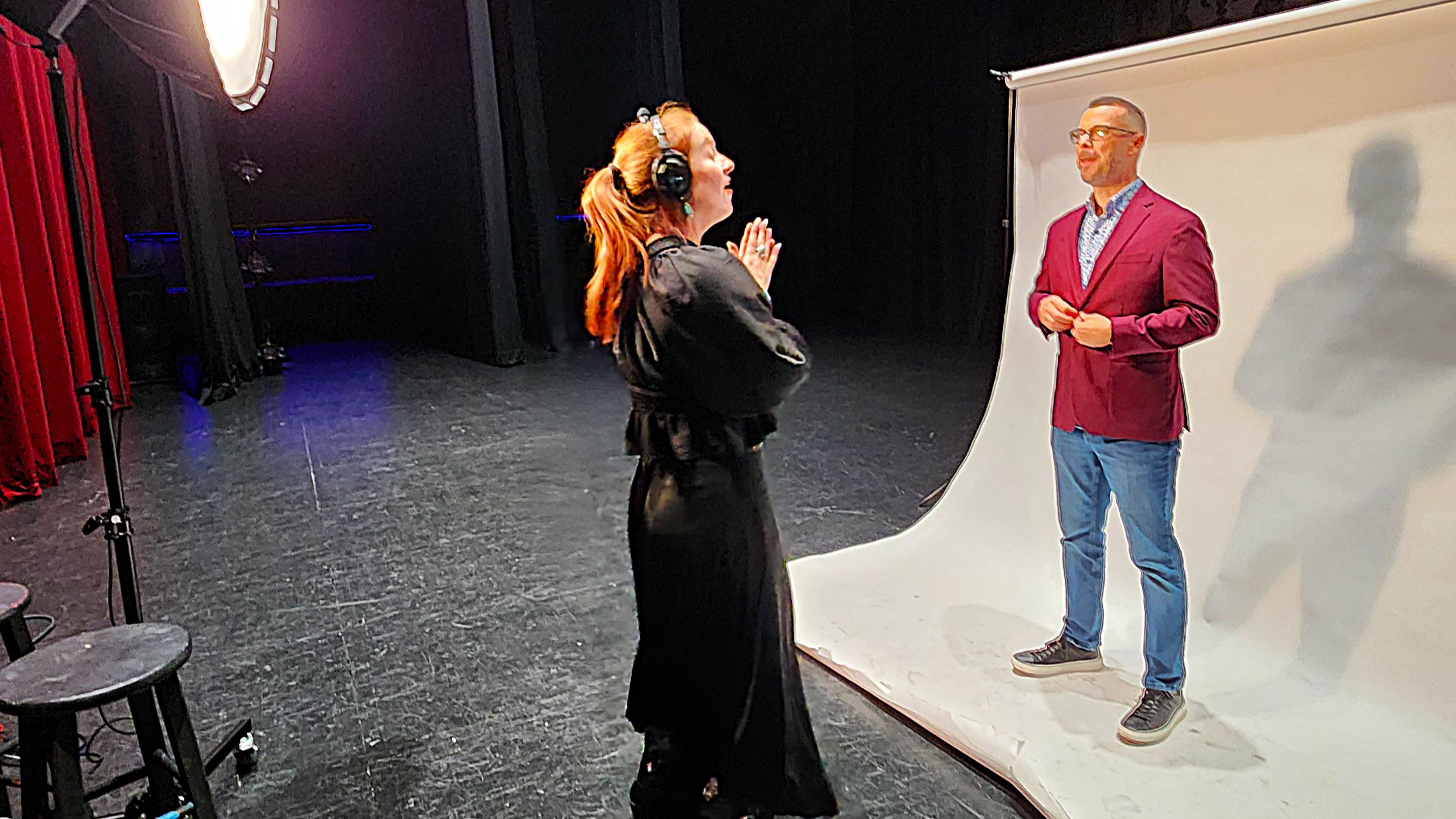How to Write Your Speaker Bio

Let’s talk about the not-so-glamorous-but-absolutely-essential piece of every speaker’s toolkit: the bio.
Whether you're just getting started or you're deep into your speaking journey, a great first impression is your best shot at getting booked. And that first impression often starts before you ever grab the mic. It starts when someone reads your speaker bio.
Now, I know—writing about yourself can feel awkward, especially if you don't like to promote or gush. It can feel like filling out a dating profile for event planners. Do I sound smart? Too smart? Do I mention my dog? My award from that one time? Do I use third person like I’m narrating my own documentary? It’s a lot. But I'll make it simple for you.
Here’s what a solid speaker bio should include:
-
Your name and title (obviously)
-
Where you work or your business and who you serve
-
Your expertise (degrees, certifications, lived experience—yes, that counts)
-
A few career highlights (awards, cool gigs, that time you were on Oprah)
-
A human touch (fun fact, hobby, something that makes you you)
And here’s the part most people forget: keep it short. If your bio reads like a novella meets a CV, no one’s making it past paragraph two. Think tight. Punchy. 100-200 words... ish. Get-in-and-get-out energy. Don't list ALL the things you are, like, speaker, coach, author, yoga instructor, medium and reiki healer. Pick two at the most. More only diminishes the clarity of who you are and what you do. The total length will vary depending on it's purpose (or stated requirement in an applications for example), but you get the idea. Er on the side of brief.
Again, I know it’s hard to sum yourself up without sounding like you’re auditioning for The Bachelor. But trust me—this is one of the most high-impact things you can do for your speaking career.
And it’s not just about your website. You’ll need a version of your bio for keynote speaker applications, TEDx submissions, event programs, and even podcast guesting forms. And while each of those audiences is slightly different, the rules stay the same.
What makes a speaker bio actually great?
Here are five principles that’ll help your bio stand out in a sea of “accomplished thought leaders” and “dynamic change agents”:
1. Be interesting.
If a stranger reads your bio and thinks, “Oof, another corporate buzzword salad,” you’ve lost them. Your bio should read like a good story, not a LinkedIn endorsement. Hook us early.
2. Sound like you.
Your bio should feel like an extension of how you show up on stage. If you’re warm, witty, and human in person, let that voice shine through in your bio. (Yes, it’s okay to write in first person. Especially for TEDx. You’re not a Wikipedia entry.)
3. Make your impact clear.
Who do you serve? What problem do you help solve? This is your bio’s heartbeat. Nail this in one or two sentences and even the busiest event planner will get what you’re about.
4. Show your receipts.
Awards, big-name clients, media features—share what’s relevant and impressive. No need to flex everything you’ve ever done. Just the hits.
5. Don’t forget you’re a human.
You like paddleboarding? You’ve got a pug named Winston? You once ate 50 dumplings in one sitting? Give us a peek behind the professional curtain. That’s what makes you memorable.
Bottom line: your bio isn’t just a summary—it’s a chance. It’s the story that gets you in the room. So make it sound like you. Make it matter. And when in doubt, keep it short, sharp, and slightly delightful.
You’ve got this.


